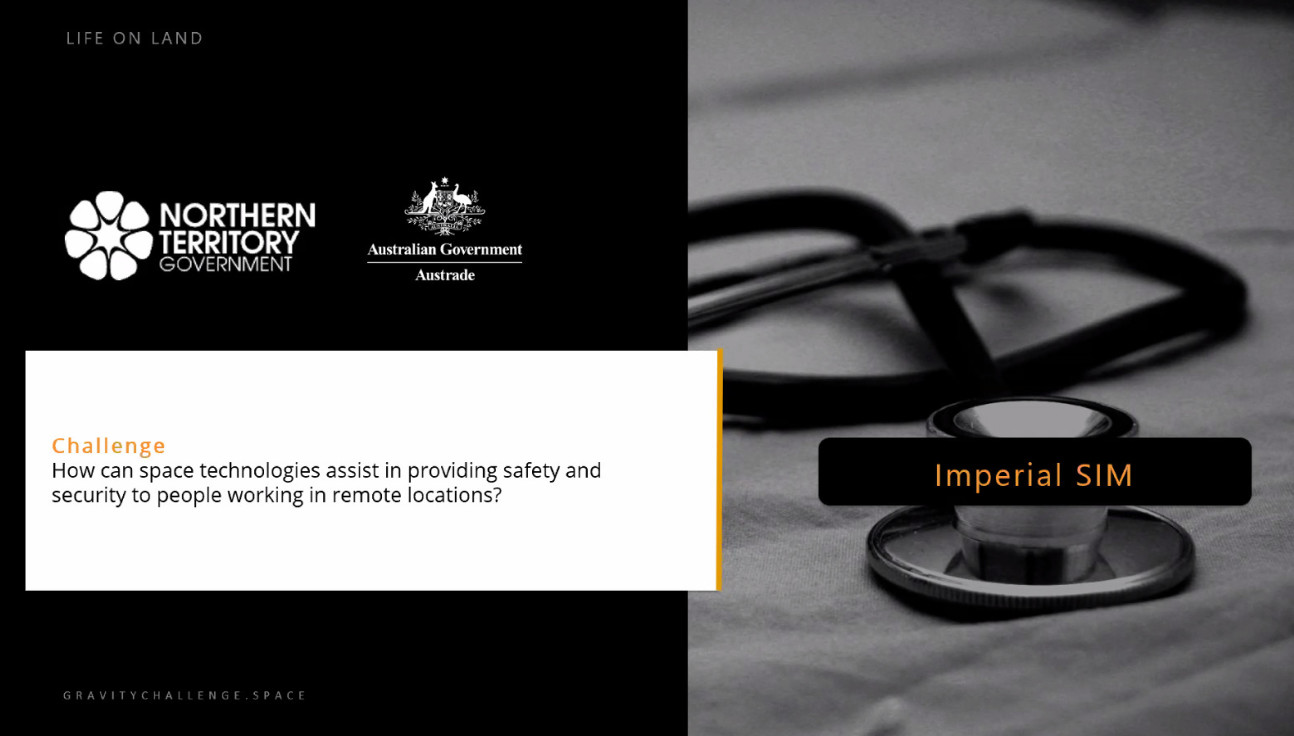Team Applies Space Technologies to Aid Health Workers in Remote Locations

The Imperial Smart Infrastructure Mobility (SIM) team are one of the winners of the GRAVITY Challenge 02, out of more than 300 teams.
13 challenges were developed by forward-thinking organisations that envisage the use of space data and space capability to solve real-world problems.
 The team, composed of PhD students Fahmy Adan, Ibtihal Ahmad, Ashley Brooks, He-in Cheong, Lintong Li and Hanyu (Nina) Meng, is based in the Centre for Transport Studies in the Department of Civil and Environmental Engineering.
The team, composed of PhD students Fahmy Adan, Ibtihal Ahmad, Ashley Brooks, He-in Cheong, Lintong Li and Hanyu (Nina) Meng, is based in the Centre for Transport Studies in the Department of Civil and Environmental Engineering.
They are supervised by Professor Washington Yotto Ochieng and Dr Arnab Majumdar.
Speaking with a range of stakeholders and data/technology providers, Imperial SIM developed a solution for the challenge presented by NT Health: How can space technologies assist in providing safety and security to people working in remote locations?
Remote health workers spend significant amounts of time on the road often in isolated, badly connected, hazardous environments.
Imperial SIM’s solution consists of a novel and integrated approach to the state, communications capability and location of both health workers and vehicles, utilising bespoke sensors and algorithms.
The system, going above and beyond, integrates and combines reliable vehicle monitoring, communications, duress activation, dynamic vehicle risk management (situational awareness) and personal health data through an end-to-end solution for the remote workforce – offering significant safety and security benefits.
Amazon Web Services will be supporting Imperial SIM by providing cloud services for the solution development.
Supported by Deloitte Innovation, the GRAVITY Challenge is an engaging and immersive initiative. It promotes connections with influential stakeholders, and accelerates innovative ideas driven by challenges from impressive brands across Australia and the UK.
Professor Catherine Stoddart, Chief Executive, Department of Health, Northern Territory Government, said, “The quality of the GRAVITY Challenge innovators has been outstanding and I look forward to seeing our pilot programs come to fruition across the Northern Territory and throughout other rural and remote areas in Australia.”
 The group also received the Collaboration Award, awarded for the best collaboration between Challenger, Innovator and program supporters. Imperial SIM will now join their Challenge provider, Department of Health of Northern Territory Government in Australia (NT Health), as part of the scale phase of their winning solution.
The group also received the Collaboration Award, awarded for the best collaboration between Challenger, Innovator and program supporters. Imperial SIM will now join their Challenge provider, Department of Health of Northern Territory Government in Australia (NT Health), as part of the scale phase of their winning solution.
Professor Ochieng, Head of the Centre for Transport Studies in the Department of Civil and Environmental Engineering, and Co-Director of the Institute for Security Science and Technology at Imperial, expressed great pride in his research students for that their fantastic achievement is such a short time, addressing a problem that has afflicted health workers particularly during the COVID-19 global pandemic.
Article text (excluding photos or graphics) © Imperial College London.
Photos and graphics subject to third party copyright used with permission or © Imperial College London.
Reporter
Melanie Hargreaves
Department of Civil and Environmental Engineering